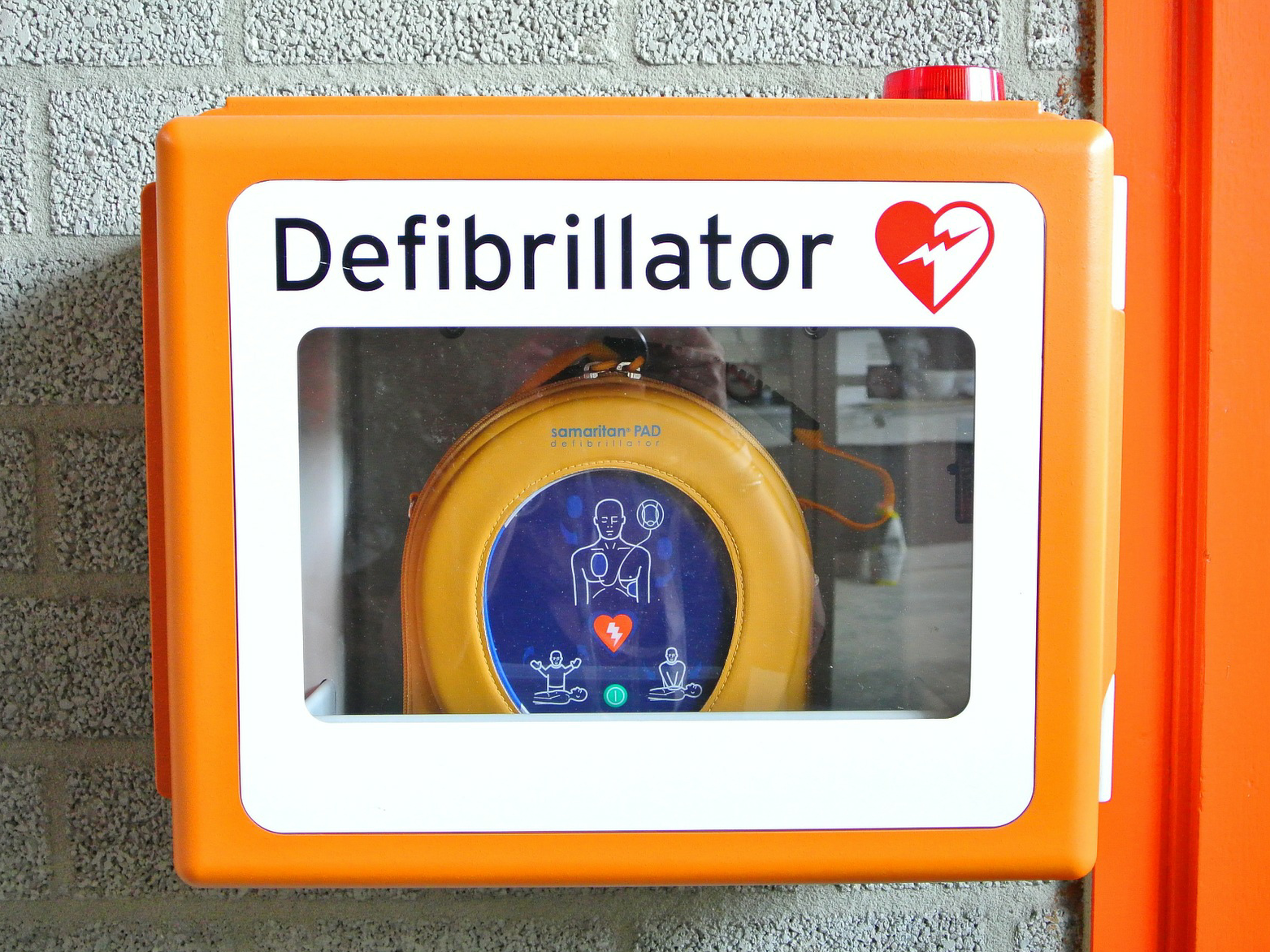
There has been an ongoing campaign to increase the number of defibrillators in public areas for some time and it has received renewed interest after the widely broadcast images of Danish footballer Christian Eriksen receiving cardiac treatment during a game at Euro 2020.
This motion, originally from Hull, explains the need, citing a specific incident – which you can of course edit to fit your local situation- and gives clear and specific proposals for improvement.
Council notes that on average 30,000 people each year suffer a sudden cardiac arrest outside of hospital, and 20% of these incidents occur in public spaces. Council further notes only 10% of victims of cardiac arrests survive when the incident occurs outside hospital.
Automated External Defibrillators (AEDs) can play a significant role in saving the lives of people who suffer heart attacks in public. It is estimated that a shock from an AED, alongside CPR treatment, increases survival rates to 75-80%.
Council notes the tragic events in June in which Hull resident Gary Mackinder passed away from a cardiac arrest suffered in Bransholme’s North Point Centre. There was no public defibrillator installed in the centre at the time.
Council commends the Oliver King Foundation for since donating a defibrillator to the North Point Centre, and the GoFundMe campaign organised by Mr Mackinder’s family which has already raised enough to fund three defibrillators in public spaces in [AREA].
Council notes that, though there are public defibrillators in various places across the city including some council premises and assets, there are gaps in the provision of publicly accessible AEDs and at present there is no holistic mapping system listing all AEDs in [AREA].
Therefore Council agrees to:
- Compile a list, and an interactive map, of all public defibrillators in [AREA] including those in non-council premises.
- Review and, where appropriate, increase the provision of defibrillators across all council-owned spaces including public parks, community centres, leisure facilities, and areas of high public footfall.
- Work with amateur sports teams to ensure they know how to access AEDs and are trained in the use of defibrillators and CPR.
- Bring a report to Health and Well-being Scrutiny Commission no later than September 2021 detailing a plan to roll out more AEDs across the city, and to produce a fully interactive mapping system to locate all public defibrillators in [AREA].
says
We have just found that after we bought defibs 3 years ago, that they now hold a hidden cost of £1800 each to renew! We, and community groups who originally naught them, are now scrambling to find this money for 4 defibs and arguing with the defibrillator organisation what a con it seems, also lobbying our mp as this issue seems to be wider than just our council.
So just read the fine print very carefully…
Sam Potts says
“ Automated External Defibrillators (AEDs) can play a significant role in saving the lives of people who suffer heart attacks in public. It is estimated that a shock from an AED, alongside CPR treatment, increases survival rates to 75-80%.”
Think it should say “Automated External Defibrillators (AEDs) can play a significant role in saving the lives of people who suffer from cardiac arrests in public. The faster an AED is placed on to a patient, the better chance of survival. The resuscitation Council UK say that for every minute a defibrillator is delayed the chance of survival drops by 10%.”
The council motion is in danger of mixing up heart attacks and cardiac arrests. Hope this helps.